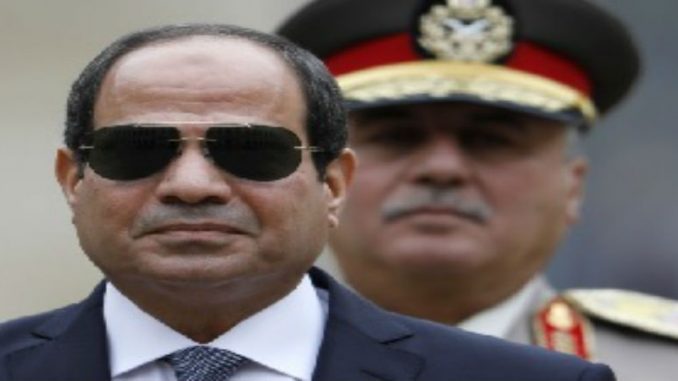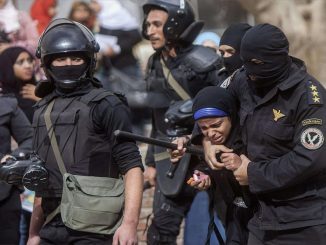
The UN human rights office voiced concern about trials that saw 15 people executed in Egypt this month may have been unfair amid allegations of torture used to obtain confessions.
Egypt executed nine men on Wednesday convicted over the 2015 killing with a car bomb of the its chief prosecutor, adding to death sentences carried out in February, according to lawyers, activists and officials. Six convicted people were executed in other cases.
“There is significant cause for concern that due process and fair trial guarantees may not have been followed in some or all these cases and that serious allegations concerning torture were not properly investigated,” UN human rights spokesman Rupert Colville told a briefing in Geneva.
All were murder cases, for which the death penalty is permissible under international law, Colville said, although the United Nations advocates its abolition. “The issue here is fair trial, the use of torture, forced confessions,” he said.
Torture has been shown to be “well-established and endemic” in Egypt, Colville added, citing a UN investigation concluded in June 2017. “A confession obtained under torture should not be admissible,” he said.
Egypt blamed the Muslim Brotherhood and Gaza-based Hamas fighters for the operation to kill public prosecutor Hisham Barakat in a car bomb attack on his convoy in Cairo. Both groups deny any role in the attack.
Colville said other defendants convicted in similar circumstances, after trials marked by “disturbing reports of a lack of due legal process”, are currently on death row and at “imminent risk of execution”.
The UN human rights office urged Egyptian authorities to halt executions, review pending cases involving the death penalty and conduct independent investigations into all allegations of torture, he said.
Since 2013, when the military under then-army chief and now Abdel Fattah al-Sisi ousted Islamist President Mohamed Morsi, Egyptian courts have issued hundreds of death sentences. Only a small proportion have been carried out, though the rate of executions has risen since 2015, rights activists say.



